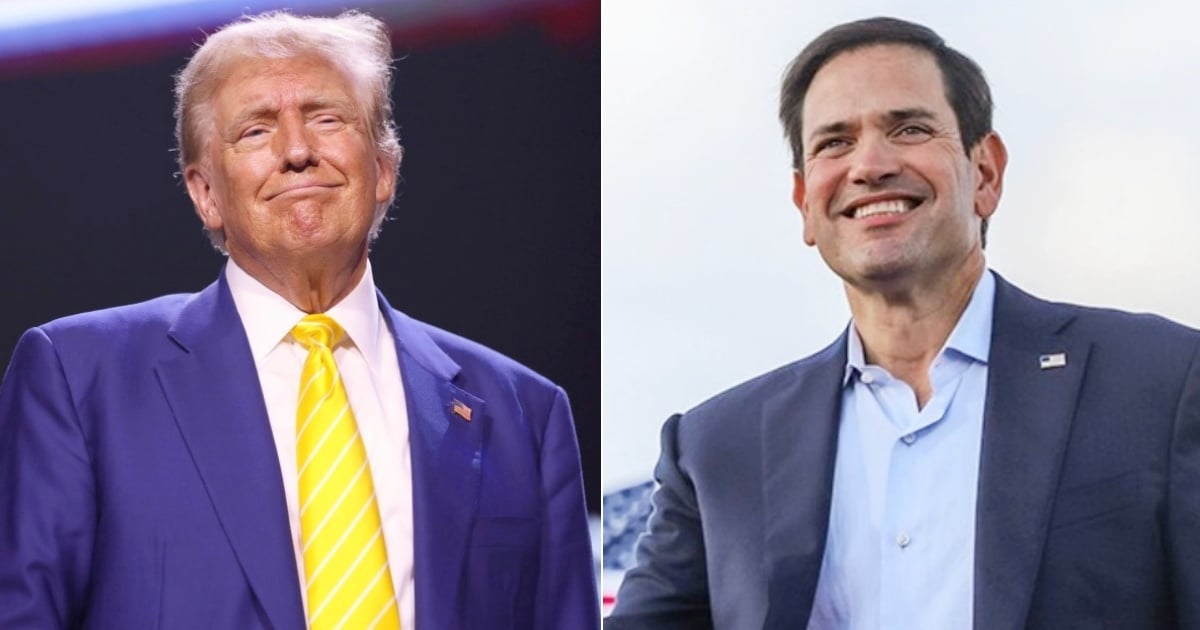Donald Trump, the U.S. President-elect, is reportedly contemplating appointing Cuban-American Senator Marco Rubio as Secretary of State, according to The New York Times. Although the decision is not final, sources close to Trump suggest that Rubio, 53, is a leading contender for this significant role, partly due to his extensive experience and the symbolic representation he holds as a Latino leader within the Republican Party.
If confirmed, Rubio would make history as the first Latino to head U.S. diplomacy, a choice that could have significant implications for the Hispanic community in the United States as well as the foreign policy of the upcoming administration.
A Hawkish Stance on Foreign Policy
Elected to the Senate in 2010, Marco Rubio has carved out a reputation as a foreign policy "hawk," known for his tough stances against countries like China and Iran. His views have garnered support from conservative circles that see him as a champion of national security and a pivotal figure in maintaining an assertive foreign policy.
Moreover, Rubio has been a staunch critic of regimes in Venezuela, Cuba, and Nicaragua, advocating for sanctions and restrictions aimed at weakening these authoritarian governments in Latin America. With Rubio at the helm of the State Department, the Trump administration could potentially bolster its focus on Latin America, as has been noted by various U.S. media outlets.
Fluent in Spanish, Rubio could serve as a crucial link in the region, aiding White House strategic goals and striving to strengthen alliances with countries that share democratic values.
Political Drama: Rubio and Trump’s Rocky Past
Rubio's potential nomination is also laden with political drama, given the turbulent history between him and Trump. During the 2016 Republican primaries, Trump and Rubio exchanged heated barbs, with Trump notoriously dubbing the senator "Little Marco."
Over time, however, Rubio has ascended within Trump's orbit, becoming an ally on several key issues, which even positioned him as a potential vice-presidential candidate for the incoming administration. Despite past conflicts, Rubio has retained his influence within the Republican Party, especially on foreign policy matters, as a member of the Senate Foreign Relations Committee.
His appointment as Secretary of State would signify a remarkable political reconciliation and further solidify his standing within Trump’s inner circle.
Impact on Latino Voters and Symbolic Significance
Rubio’s appointment as Secretary of State could send a strong symbolic message to the Latino community in the U.S., a demographic that comprised about 15% of the electorate in the most recent elections. Despite Trump's controversial immigration rhetoric, his administration appears to acknowledge the importance of Hispanic voters, particularly in states like Florida, where Rubio enjoys a strong support base.
Including Marco Rubio in the cabinet would allow Trump to reach out to the Latino community and improve his image within this group by demonstrating a willingness to integrate Hispanic leaders into high-level positions.
Hardline Foreign Policy: China, Russia, and Ukraine Conflict
Rubio has taken a firm stance against the geopolitical rivals of the United States, such as China and Russia. Regarding the conflict in Ukraine, the Cuban-American senator has stated in interviews that although he does not support Russia, he believes the war will conclude with a negotiated settlement, advocating a diplomatic route to the conflict.
In September, he told NBC, “The reality is the way the war in Ukraine is going to end is through a negotiated settlement.” Rubio also opposed a $95 billion military aid package for Ukraine, arguing that the country should explore diplomatic alternatives to resolve the conflict.
On the matter of Gaza, Rubio has maintained a decidedly pro-Israel stance. When clashes erupted last November, Marco Rubio opposed a ceasefire, vigorously defending Israel. While Rubio largely aligns with Trump’s hardline foreign policy, some aides have noted that his "hawkish" profile could clash with Trump’s “America First” vision.
This isolationist stance prioritizes national interests over international interventions, contrasting with Rubio’s more interventionist approach, advocating for U.S. presence and leadership on the global stage.
The new administration's foreign policy will face a world fraught with tensions: the war in Ukraine, China’s growing influence in Asia, and the alliances between Russia, Iran, and China. Trump has vowed that his administration will make the U.S. a "feared" power on the global stage, asserting that rivals such as Russia and China have gained strength under President Joe Biden's leadership. Nevertheless, Trump maintains a close relationship with Russian President Vladimir Putin, having communicated with him after leaving the White House, a fact that has drawn criticism both domestically and internationally.
In an increasingly unstable international environment, Rubio's potential appointment could be crucial in shaping how the U.S. navigates foreign relations, promoting a firm policy aligned with the conservative values both leaders aim to project globally.
